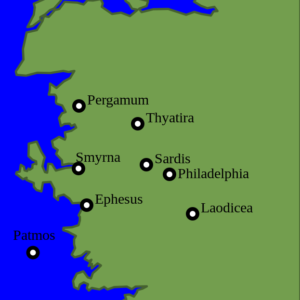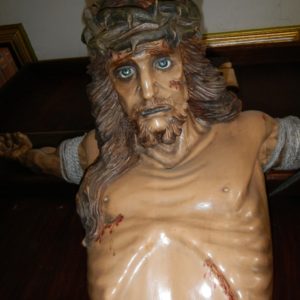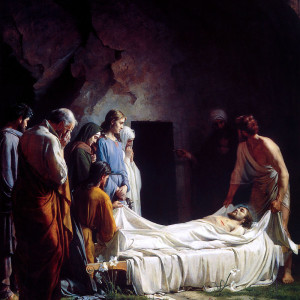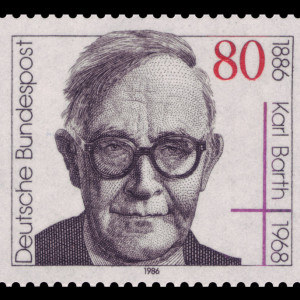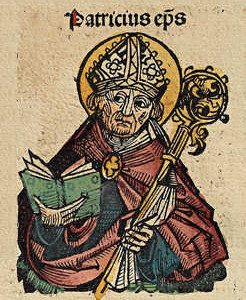Protestants frequently claim that there are only 66 books in the Bible. This isn’t the Bible used by early Christians, by Luther, by Calvin, or by the Catholic, Orthodox, or Coptic Churches. So where do they draw support? Strangely, they cite a single fourth century Church Father: St. Jerome. But there’s a problem with that approach. Or more accurately: four problems.
Tag: ECFs
How the Early Church Disproves Protestant Claims About the Eucharist and the Church
Why should we care about the writings of the Church Fathers, or early Church history? Consider the Church of the early 100s. Protestants typically (a) reject the doctrine of the Real Presence of Christ, that the Eucharist becomes His Flesh and Blood; and (b) believe that once you are saved, you’ll never permanently fall away from the faith. But holding these views would require believing that the very same Symrnaean and Ephesian Christians praised by Christ in 96 A.D. are heretics by 107 A.D.
Did Jesus Have a Human Soul?
As Christians, we readily acknowledge that Jesus, in addition to being Divine, also had (and has) a true human body. But does Jesus also have a human soul? This is one of the earliest questions that the early Church had to resolve, and the answer is crucial for how we understand Christ Jesus.
The Catholic Church Doesn’t Look Like the Early Church? Good.
It’s frequently objected that the Catholic Church doesn’t look like the early Church. Good. It’s not supposed to.
The Virgin Tomb of Christ
Both St. Matthew and St. John take pains to specify that Christ’s Tomb was never-before used. “Now in the place where he was crucified there was a garden, and in the garden a new tomb where no one had ever been laid” (John 19:41). But why do they both specify this seemingly-mundane detail? Because the Virgin Tomb, like the Virgin Womb, tells us something about Who Jesus Is.
Karl Barth v. Keith Mathison on the Early Church & Sola Scriptura
Did the early Christians believe in “sola Scriptura” (Scripture alone)? Or did they also believe in Apostolic Tradition? Keith Mathison, in his book “The Shape of Sola Scriptura,” claimed that the Catholic view wasn’t found in the first centuries of the Church, and that the earliest Church Fathers believed in sola Scriptura.
Mathison’s views are thoroughly debunked by (of all people) Karl Barth, the Reformed theologian Christianity Today called “the most important theologian of the twentieth century.” And Barth capably proved the Catholic Patristic case… even though he personally believed in sola Scriptura!
What the Earliest Recorded Marian Prayer Reveals About the Early Church
The earliest recorded prayer to Mary, dating to about 250 A.D. says: “Beneath your compassion, We take refuge, O Mother of God; do not despise our petitions in time of trouble, but rescue us from dangers, only pure, only blessed one.” Here’s what that tells us about the early Church.
The Poetry of the Saints
It’s not news to say that we Catholics struggle with beautiful music these days. More than two decades ago, Thomas Day released Why Catholics Can’t Sing: The Culture of Catholicism and the Triumph of Bad Taste, and the problems still exist. We mutter along with the responsorial Psalm; and mumble through the hymnody, with its milquetoast lyrics set… Continue reading The Poetry of the Saints
Saint Justin Martyr? Or Justin Idolater?
Early Christians like St. Justin Martyr and his companions died for the Christian faith, rather than worshipping idols. But if Protestants like Peter Leithart and Mike Grendon are right, these early Christians were idolaters anyways. Why? Because they believed in transubstantiation, that the bread and wine become the actual Body and Blood of Our Lord Jesus Christ. So are Protestants right? Should we call him “Justin Idolater” instead? Or can we trust the early Christians?
6 Early Christian Controversies That Protestantism Can’t Explain
Woodcut of St. Patrick, Nuremberg Chronicle (1493) In an article entitled Saint Patrick the Baptist?, Stephen R. Button tries to claim St. Patrick for Evangelical Protestantism… or at least disassociate him from Roman Catholicism. Button is hardly alone: you can find similar attempts by Don Boys and others, some of them dating back several decades. The argument tends… Continue reading 6 Early Christian Controversies That Protestantism Can’t Explain

